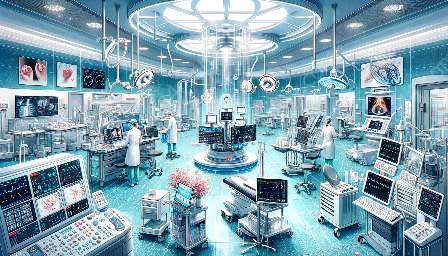Medical device development is a dynamic and complex process that involves innovation, research, and testing to bring new technologies that enhance healthcare delivery. However, the development of medical devices also raises ethical considerations related to patient safety, privacy, and informed consent. This topic cluster will explore the ethical dimensions of medical device development, with a specific focus on the perspectives of clinical engineering and the impact on the use of medical devices.
1. Patient Safety and Risk Management
One of the primary ethical considerations in medical device development is ensuring patient safety. Clinical engineers play a critical role in identifying potential risks associated with new medical devices and mitigating these risks through rigorous testing and validation processes. Ethical decision-making in this context involves balancing the potential benefits of the device against the potential risks to patient well-being. It requires a thorough understanding of the clinical environment, potential failure modes, and human factors that can impact the safe use of medical devices.
2. Informed Consent and Patient Autonomy
Another crucial ethical consideration in medical device development is obtaining informed consent from patients who will be using the devices. Clinical engineers and healthcare providers must ensure that patients have a clear understanding of the purpose, risks, and benefits of the medical devices being used. This process is essential for respecting patient autonomy and upholding ethical standards in healthcare delivery. Additionally, transparency in communication and the provision of comprehensive information are vital aspects of ethical medical device development.
3. Privacy and Data Security
The integration of medical devices with digital technologies and connectivity raises ethical concerns related to patient privacy and data security. Clinical engineers and developers of medical devices must prioritize the protection of sensitive patient information and comply with relevant regulations such as the Health Insurance Portability and Accountability Act (HIPAA) and the General Data Protection Regulation (GDPR). Ethical considerations in this context require a proactive approach to designing secure systems and implementing robust data protection measures to safeguard patient privacy and confidentiality.
4. Accessibility and Equity in Healthcare
Ethical medical device development extends beyond technical considerations to include accessibility and equity in healthcare delivery. Clinical engineers need to consider the diverse needs of patient populations and ensure that medical devices are accessible to all, regardless of socioeconomic status or geographic location. Addressing disparities in access to innovative medical technologies can contribute to ethical advancements in healthcare and promote fairness in the distribution of healthcare resources.
5. Professional Integrity and Responsibility
Clinical engineers and professionals involved in medical device development are bound by ethical codes and standards that require a commitment to professional integrity and responsibility. Adhering to ethical principles such as transparency, honesty, and accountability is essential in ensuring the safety and efficacy of medical devices. This includes ethical considerations related to conflicts of interest, industry influence, and the reporting of adverse events associated with medical devices.
6. Ethical Review and Regulatory Compliance
Throughout the development lifecycle of medical devices, ethical review processes and regulatory compliance play a vital role in upholding ethical standards. Clinical engineers collaborate with regulatory bodies and ethics committees to ensure that medical devices meet established safety and performance requirements. Ethical considerations in this context involve adhering to regulatory frameworks, promoting transparency in reporting, and engaging in continuous quality improvement to align with evolving ethical and legal standards.
7. Stakeholder Engagement and Ethical Decision-Making
Engaging with diverse stakeholders, including patients, healthcare providers, industry partners, and regulatory agencies, is essential for incorporating ethical considerations into medical device development. Clinical engineers and developers should actively seek input from stakeholders to understand their perspectives on ethical issues and incorporate their feedback into the design and implementation of medical devices. Ethical decision-making processes should be transparent, participatory, and guided by a commitment to prioritizing patient well-being and ethical conduct.
8. Ethical Leadership and Professional Development
Building a culture of ethical leadership and professional development within the field of clinical engineering is crucial for navigating the ethical complexities of medical device development. Ethical leadership involves promoting ethical awareness, fostering a culture of continuous learning and improvement, and setting high standards for ethical conduct at all levels of the healthcare technology ecosystem. Professional development initiatives should include ethical training, case studies, and discussions to enhance the ethical capabilities of clinical engineers and professionals involved in medical device development.
Conclusion
The intersection of clinical engineering and medical devices presents multifaceted ethical considerations that require a thoughtful, comprehensive, and interdisciplinary approach. By addressing ethical dimensions such as patient safety, informed consent, privacy, accessibility, professional integrity, regulatory compliance, stakeholder engagement, and ethical leadership, the development of medical devices can align with ethical principles and contribute to the advancement of ethical standards in healthcare technology. Through a commitment to ethical decision-making and responsibility, clinical engineers and stakeholders can collaboratively navigate the ethical complexities inherent in medical device development and promote the ethical advancement of healthcare delivery.


